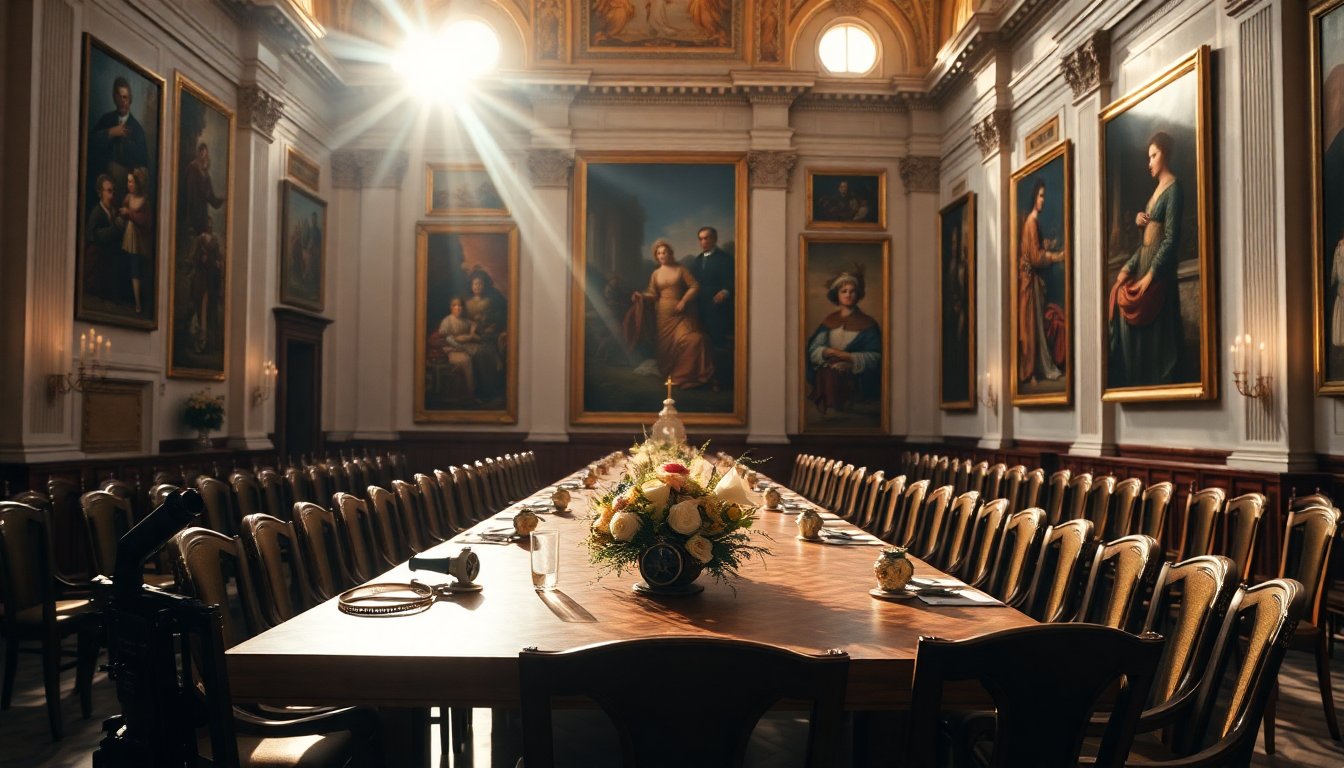Table of Contents
Pope Leo XIV convened a significant gathering at the Vatican, engaging with prominent actors and directors to discuss the impact of cinema on society. The event addressed the challenges faced by the film industry in the digital age, highlighting the struggle of theaters to remain relevant against the rise of streaming platforms. The Pope’s message resonated with his distinguished guests.
Notable attendees included acclaimed actors such as Cate Blanchett, Monica Bellucci, and Chris Pine, along with influential directors like Spike Lee and Gus Van Sant. Pope Leo XIV expressed his belief that cinema serves as a crucial medium for fostering hope and reflecting human experiences.
The enduring significance of cinema
In his address, Pope Leo XIV marked the upcoming 130th anniversary of cinema, commemorating the first public screening by the Lumière brothers in Paris. He referred to films as a workshop of hope, urging filmmakers to create narratives that inspire and uplift audiences. The Pope voiced concerns regarding the decline of traditional cinema, which he described as a communal experience that enriches lives.
Sharing the cinematic journey
The Pope invited his guests to consider the transformative power of film, stating that entering a movie theater is akin to crossing a threshold. It is a space where darkness enhances our senses, allowing for deeper emotional engagement. He portrayed cinema as a sensory journey, where light interacts with shadows, prompting viewers to think critically and feel deeply.
He further emphasized that authentic cinema goes beyond mere distraction; it raises essential questions about the human condition. He remarked, “When cinema is authentic, it does not merely console, but challenges.” By confronting life’s complexities, cinema can elicit necessary emotional responses, revealing truths that might otherwise remain unacknowledged.
Emphasizing authenticity and engagement
Pope Leo XIV encouraged filmmakers to embrace authenticity in storytelling. He urged them to address pressing issues such as violence, poverty, and exile, viewing these themes not as subjects for exploitation but as fundamental aspects of the human experience deserving honest exploration. He expressed that giving voice to the myriad emotions within the human heart is an act of love.
A call to action for filmmakers
The Pope’s message was unequivocal: filmmakers possess the power to recover the essence of imagery, vital for promoting human dignity. He encouraged his guests to create works that reflect both beauty and struggle, engaging with the mystery of frailty. By doing so, they can inspire hope and foster a deeper understanding of the human experience.
As they navigate their creative journeys, the Pope reminded filmmakers that they embark on a pilgrimage of sorts—one measured not in distance but in the emotions and memories their art evokes. His fervent prayer was that their contributions would continue to challenge, inspire, and ultimately reveal glimpses of the divine mystery.
This gathering at the Vatican serves as a poignant reminder of the role cinema can play in contemporary society. As Pope Leo XIV articulated, the need for witnesses of hope and truth in the film industry has never been more urgent. As the industry evolves, filmmakers are called to harness their creativity to navigate life’s complexities, sparking meaningful conversations and illuminating paths toward a more compassionate future.


